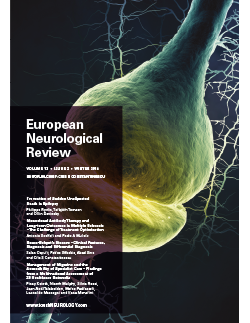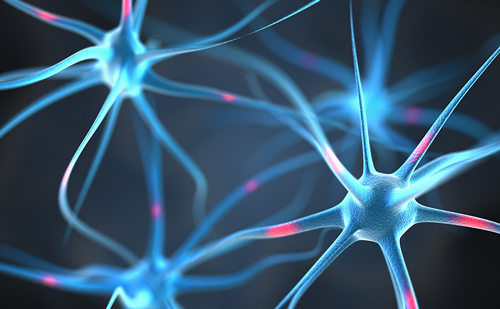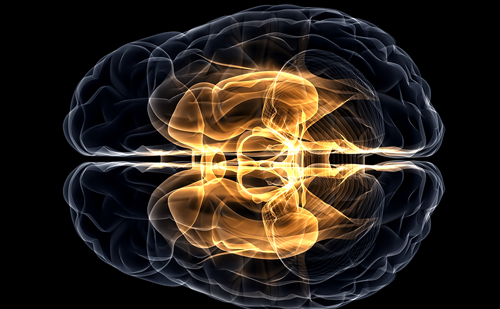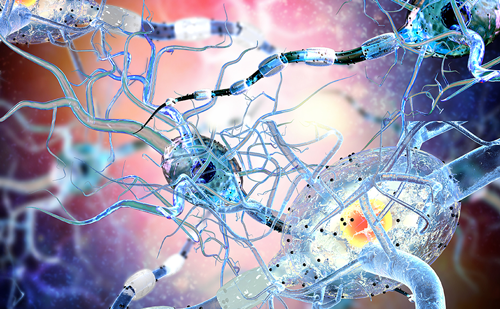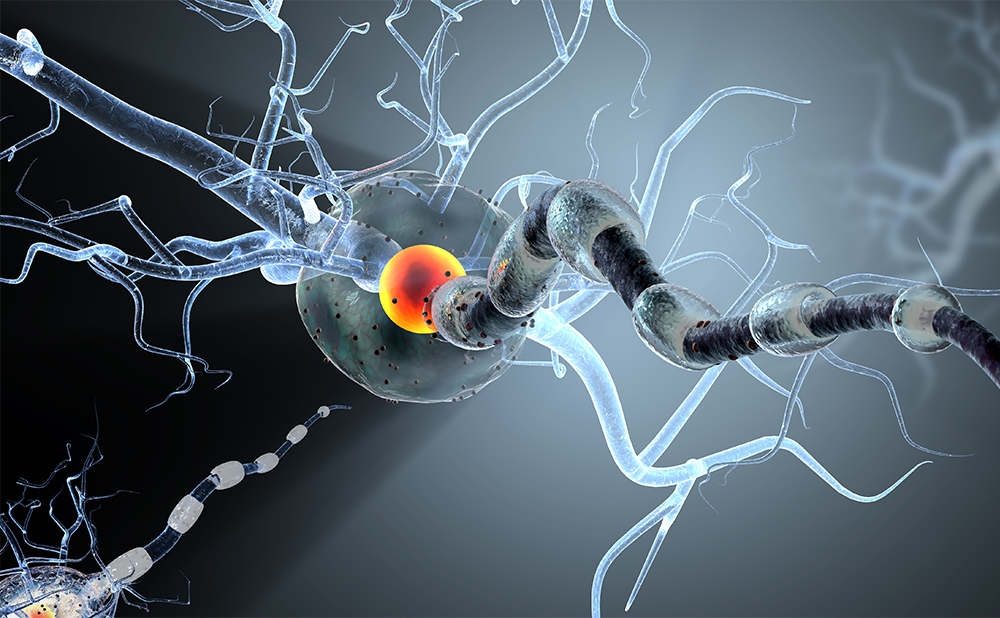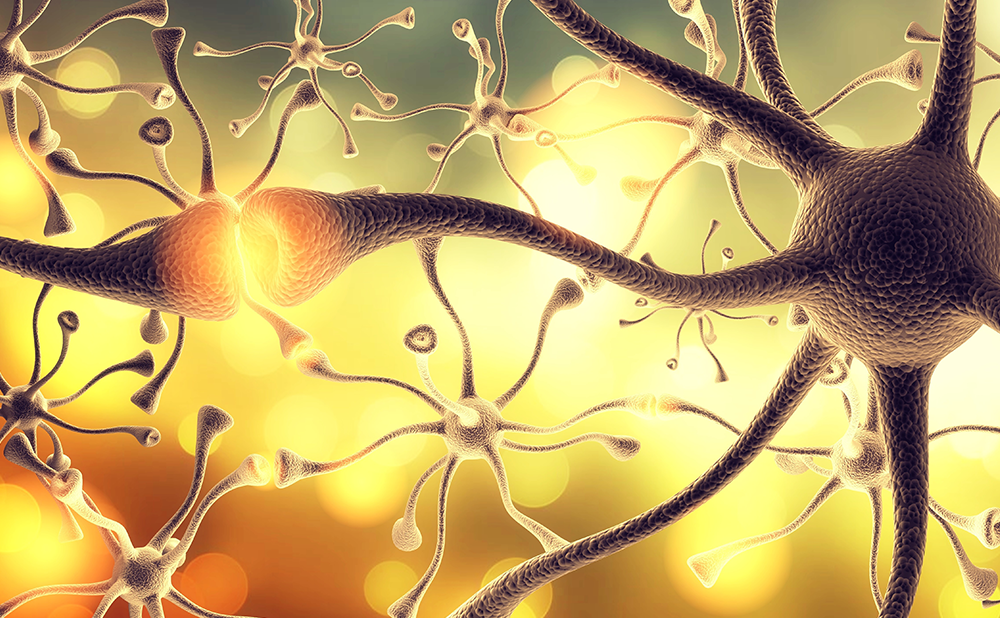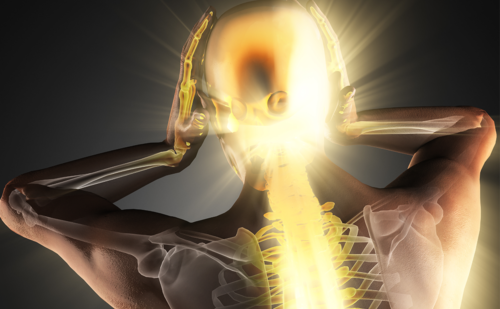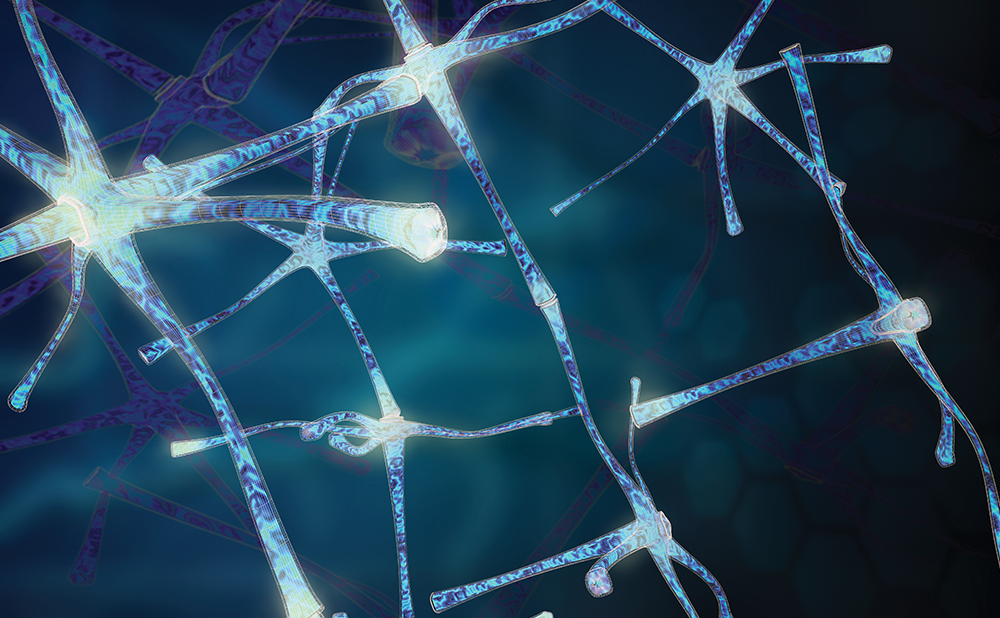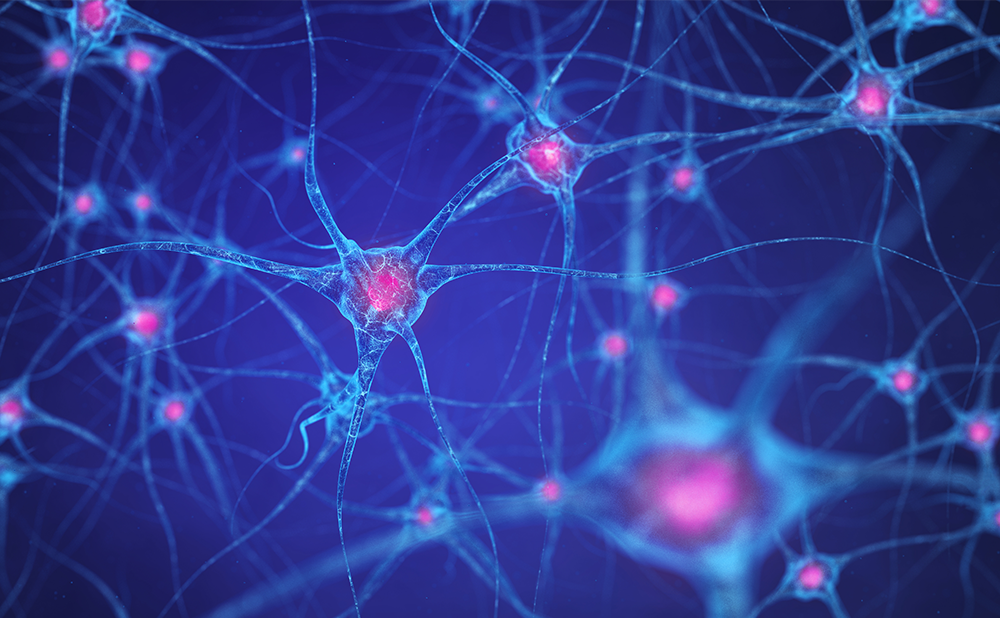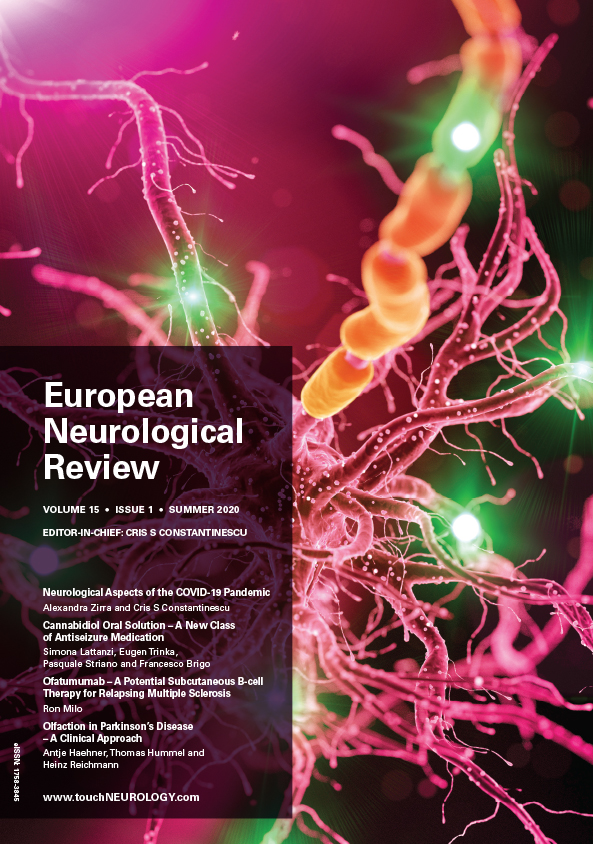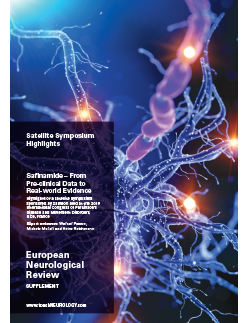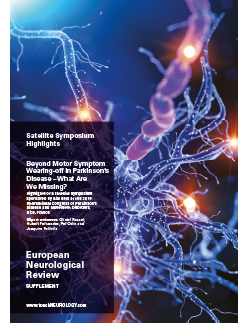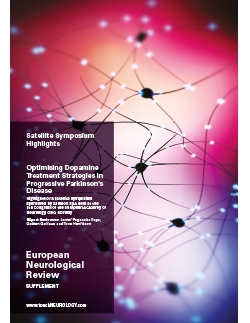EUROPEAN NEUROLOGICAL REVIEW – VOLUME 13 ISSUE 2 – WINTER 2018
Welcome to the latest edition of European Neurological Review. This issue features a diverse range of articles covering new developments in headache disorders, epilepsy, multiple sclerosis, stroke, Alzheimer’s and neuromuscular disorders. While most neurologists encounter patients with these conditions on a regular basis, it is also important to maintain our awareness of some less common neurological disorders. This issue also focuses on more specialised topics such as neuro-Behçet’s disease, herpes zoster radiculopathy and Charles Bonnet Syndrome.
European Neurological Review would like to thank all authors who contributed their expertise towards this edition. A special thanks goes to our Editorial Board for their continuing support and guidance. Thanks also go to all organisations and media partners for their ongoing support. We hope that you will find these thought-provoking articles interesting and useful.
Welcome to the latest edition of European Neurological Review, which features a diverse range of articles covering new developments in neurological disease. We begin with one of our popular expert interviews on the subject of headache disorders. Nunu Lund presents some fascinating new insights into cluster headache. Later in the journal, Kainth et al. present […]
Expert Interview
Cluster headache (CH) is a primary headache disorder affecting up to 0.1% of the population.1 It is characterised by the extreme nature of the attacks, the unilateral distribution of pain and the accompanying ipsilateral autonomic symptoms and restlessness.2 Attacks may arise between once every other day and eight times a day during the attack periods, […]
Reviews
Sudden unexpected death in epilepsy (SUDEP) is defined as a sudden, unexpected, witnessed or unwitnessed, non-traumatic and non-drowning death in a patient with epilepsy, with or without evidence of a seizure, excluding documented status epilepticus, in which post-mortem examination does not reveal a toxicological or anatomical cause.1 It is the most common cause of […]
Multiple sclerosis (MS) is a chronic, autoimmune disease of the central nervous system (CNS), which has an enormous social and economic cost.1 In most cases (~85%), the disease course is initially characterised by clinical exacerbations (relapses), which occur with a relatively random pattern and can be followed by partial or complete recovery. After a variable […]
Myasthenia gravis (MG) is a relatively rare autoimmune disease, caused by an antibody-mediated blockade of neuromuscular transmission and resulting in skeletal muscle weakness. MG is characterised by fluctuating muscle weakness that worsens with activity and improves on resting. Over half of patients with MG initially present with ocular symptoms with or without generalised weakness.1–3 However, […]
In March 2017, a mini-symposium at the 11th Congress of Controversies in Neurology (CONy), Athens, Greece, was dedicated to neuro-Behçet’s disease (NBD). An introduction into the key clinical features of Behçet’s disease (BD) was followed by a review of its neurological manifestations and a focused presentation of the challenges of differential diagnosis. This review represents […]
Original Research
The occurrence of mixed dementias is significantly related to the aging process.1 Their brain pathology accounts for most cases in community-dwelling older persons.2 Mixed dementias are clinically under-recognised and need neuropathological confirmation.3 The most frequent types are those composed of Alzheimer’s dementia (AD) associated with cerebral amyloid angiopathy (CAA), cerebral arteriosclerotic micro-angiopathy (CAMA), and […]
Headache disorders represent a large share of consultations in neurology services. A study conducted by the World Health Organization (WHO) revealed that one-third of all neurological consultations are currently reserved for headache.1 Neurology clinics often have long waiting lists, extending to over 1 year for a first consultation. Such waiting times substantially delay patients’ access […]
Case Reports
Levetiracetam (LEV) is an anti-epileptic drug (AED) indicated for treatment of a broad range of seizure types, of both focal and generalised onset.1 It has many advantages that make it one of most commonly used AEDs. Among the principle ones are its high efficiency, its rapid initial effect, its availability for parenteral administration and its […]
Herpes zoster, also known as shingles, is one of the many manifestations of neurologic disorders and occurs with a cumulative life-time incidence of 10–20% in the general population.1 The annual incidence of this disease differs worldwide; in the UK, herpes zoster is found in 0.37 per 1,000 population, with the risk of a second attack […]
Charles Bonnet syndrome (CBS) is characterised by the presence of visual hallucinations (VH) and visual sensory deprivation in individuals with preserved cognitive status and without a history of psychiatric illness.1 CBS is a rare, underdiagnosed and under-recognised syndrome, which was first described in 1769 by Charles Bonnet, who observed this phenomenon in his grandfather.1 The […]

Trending Topic
The prevalence of unruptured intracranial aneurysms (IAs) is approximately 3% of the population, with incidence on the rise due to the increased utilization of neuro-imaging for diverse objectives.1,2 The average risk of rupture for unruptured IA is estimated to vary from 0.3% to exceeding 15% per 5 years.3 Ruptured IA is the primary aetiology of […]
Journal Archive
European Neurological Review is a peer-reviewed, free-to-access, bi-annual neurology journal comprising review articles, case reports, practice guides, theoretical discussions, and original research. It features balanced and comprehensive articles written by leading authorities, addressing the most important and salient developments in the field of neurology in practical terms.
Latest articles videos and clinical updates - straight to your inbox
Log into your Touch Account
Earn and track your CME credits on the go, save articles for later, and follow the latest congress coverage.
Register now for FREE Access
Register for free to hear about the latest expert-led education, peer-reviewed articles, conference highlights, and innovative CME activities.
Sign up with an Email
Or use a Social Account.
This Functionality is for
Members Only
Explore the latest in medical education and stay current in your field. Create a free account to track your learning.


